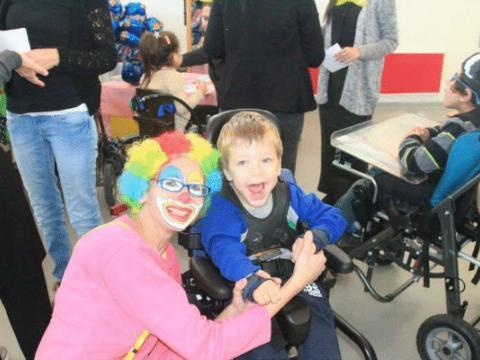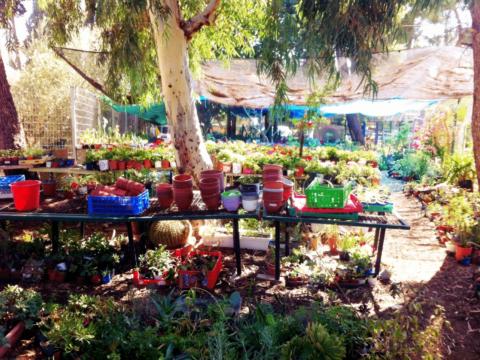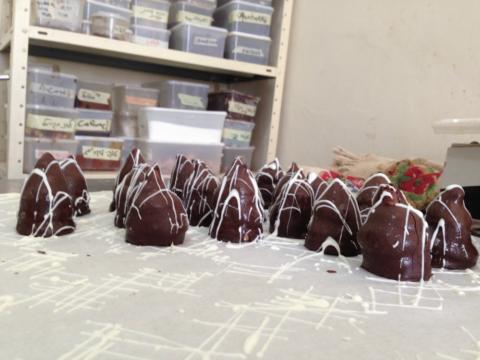Only 1,440€ per week!
Youth Centre Effort
Jerusalem - Israel
Immerse yourself in Israel by assisting local teachers create a safe, healthy environment for troubled children.
Work in a school nursery and interact with its youth while assisting staff with daily activities. You will have the opportunity to share your knowledge and experience with the children as through the program, they learn that they each have the ability to bring a dying plant up to full health, a strong metaphor for all precious life…including their own!
Program Description
Be part of this special school, where youth from troubled backgrounds have a second chance to progress as productive members of the community. The school’s rehabilitative approach gives the kids space to develop and make good life decisions. All of these school’s students are male between 12 to 18 years of age and come from a range of backgrounds. They each have a unique story to share and they have gone through a lot.
Projects that this community initiative offers allow students to experiment with responsibility and express their true character, the main project being the plant nursery where you will be helping out. Don’t worry though, you won’t need any experience in horticulture, as you will learn all you need to know at the school.
The school also has a library, computer lab, carpentry workshop, music room, an arts room, and a petting zoo with a variety of animals which you can also interact with.
These students need mentoring and positive influences in their lives. During this program, you will not only learn a couple of gardening secrets, but you will also open the students to informal interactions which will give them a chance to express themselves.
Because of the school's philosophy of creating a space for students to make their own decisions, the interaction you have with the students will develop naturally while you are there.
Note: IMPORTANT: This program requires an extra confirmation of availability via email due to strict placement restrictions
Aims & Objectives
- Broaden the children’s minds and allow them to develop an understanding of themselves
- Give you practical experience in using nature to work with children
- Assist the program staff with activities and tasks
Schedule
Sunday to Thursday
You can expect to work from 9:00 to 15:00 at the school, but daily activities may change from week to week. Expect a lot of gardening, some construction, and some interaction with the risk youth…though please note that depending on the time of year you may not have the chance to interact as much with these youth (i.e. during school holidays and breaks).
Note: This schedule can be changed and/or amended depending on weather conditions, local conditions and unforeseen circumstances.
Participant Criteria & Requirements
Standard Requirements
Minimum age: 18
Maximum age: 80
Minimum English level: Basic
CRB required: On Signup
Passport copy required: No
Resume copy required: No
Required qualification: None
Additional Requirements
There are no further requirements for this program.
Additional Equipment
No specific equipment required for this program.
Location
During the first two nights of the Culture Week, you’ll be staying at a hostel in the center of Jerusalem near the famous Machne Yehuda Market. This hostel is 2 km from the storied Church of the Holy Sepulchre and the ancient Dome of the Rock. On your third day in Israel you will be transported to Tel Aviv, where you will be taken on a guided tour of Tel Aviv’s bustling streets and the beautiful port city of Jaffa.In Tel Aviv you will be staying at a central hostel in the heart of the city.
About the Accommodation
You will stay at a hostel style dorm room. The room is basic but comfortable and include bunk beds, cable TV, a closet, as well as a mini-fridge, all which you are welcome to use.
Food Arrangements
Breakfast is served at the hostel from 7am. It is a full Israeli breakfast which consists of eggs, breads, vegetables, labneh (a type of yogurt), juice, coffee and tea. Participants in the Agricultural Experience will receive a voucher for those days when they are leaving too early to eat at the hostel.
You will receive a food voucher to purchase lunch and/or dinner for the duration of your program. The voucher is equivalent to 60 shekels a day and can be used at most eateries around Tel Aviv, allowing you to enjoy a range of local foods.
Facilities
You can find several services nearby:
Supermarket: Located 5-10 minutes walking distance from the accommodation.
ATM: There are several ATM’s within walking distance from the accommodation.
Laundry: Laundromats are within walking distance of the accommodation.
Market: There is a large open-air market about 25-minutes walking distance from the accommodation and small kiosks that sell fresh fruit and vegetables within 10 minutes walking.
Restaurants: There are plenty of restaurants within walking distance.
Activities & Events
No scheduled activities outside the program.
Sights & Surroundings
Eilat
The international beach resort of Eilat is only 50 kilometers away if you want to enjoy some snorkeling, go to an internet cafe, or enjoy the vibrant nightlife.
Tel Aviv
For those that want to see the rest of the country, it is easy to use public transportation and explore Tel Aviv or the north of Israel.
The Dead Sea
We recommend that no trip to Israel be completed without a mud bath and a float in the Dead Sea.
Transportation
From this location we provide free transport to your next program at the following location(s):
- Arava Valley
- Eilat
- Negev
- Tel Aviv
Quick Facts
Name: State of Israel
Population: 8 million
Capital: Jerusalem
Language: Hebrew and Arabic
Currency: Israeli New Shekel (ILS)
Time zone: UTC +2
Country Information
Despite its small size, Israel boasts an unbeatable amount of things to do that will delight every traveler’s senses. From religious sites and archaeological wonders to lively cities packed with history and nightlife and breathtaking natural landscapes that will leave even the pickiest of visitors awestruck.
Israel has the highest number of museums per capita in the world. Moreover, Tel Aviv was ranked as the top ten city for nightlife and described as the “capital of Mediterranean cool” by Lonely Planet. This tiny country is the Holy Place of Jews, Muslims and Christians and many biblical places concentrate here. Float in the Dead Sea, get lost in infinite deserts, discover Jerusalem, enjoy Tel Aviv – Israel has something to offer to anyone’s tastes.
Climate
The northern part of Israel has a Mediterranean climate (hot, dry summers and cool, rainy winters). The south and east have an arid climate.
The rainy season starts in October and lasts until the beginning of May, with the northern parts of the country receiving noticeably more rain than the south.
Culture
Israel is considered part of the Holy Land of Judaism, Christianity, Islam and Bahaism, who all have significant ties here. Tiny in size, Israel contains a vibrant history and mixture of cultures and personalities. Even though it was officially founded in 1948, the country’s history goes back to the beginning of human civilizations.
Israel boasts a mix of culture like no other, with a complex history to back it up and hence, it is a destination that has fascinated travellers and pilgrims for centuries on end.
Gastronomy
Israeli cuisine adapts many styles of Jewish gastronomy, namely Mizrahi, Sephardic and Ashkenzi cooking, brought by Jews from the Diaspora. Middle Eastern foods such as falafel, couscous, hummus and more are also popular in the country. Another great influencer has been the Mediterranean region, as many items common to the area are available in Israel and commonly incorporated into every-day dishes.
Kosher foods are also a big part of the Israeli cuisine. Kosher incorporates all food that conforms to the Jewish dietary law known as kashrut. For example, laws that form the kashrut prohibit the consumption of pork and shellfish.
Transportation
Bus
Buses in Israel are cheap, fast, reliable and the most common public way of transportation for both Israelis and tourists alike. Note: From Friday at sunset until Saturday dusk (Sabbath), buses don’t run in most of Israel.
Another thing worth noting is that soldiers use buses to travel to and from their bases and it is typical to see buses packed with soldiers who are often armed. This is common and nothing to be alarmed about, as it is mandatory for most Israeli citizens to go through military training.
Train
The train system in Israel was recently modernized. You can expect a high level of comfort if travelling by train but in return, tickets can be quite pricey in comparison to bus fares. But take note: from Friday at sunset until Saturday dusk (Sabbath), trains don’t run in most of Israel.
Minivans or “monit sherut”
They are faster than normal buses and can be hailed from anywhere. They run even during Shabbat.





